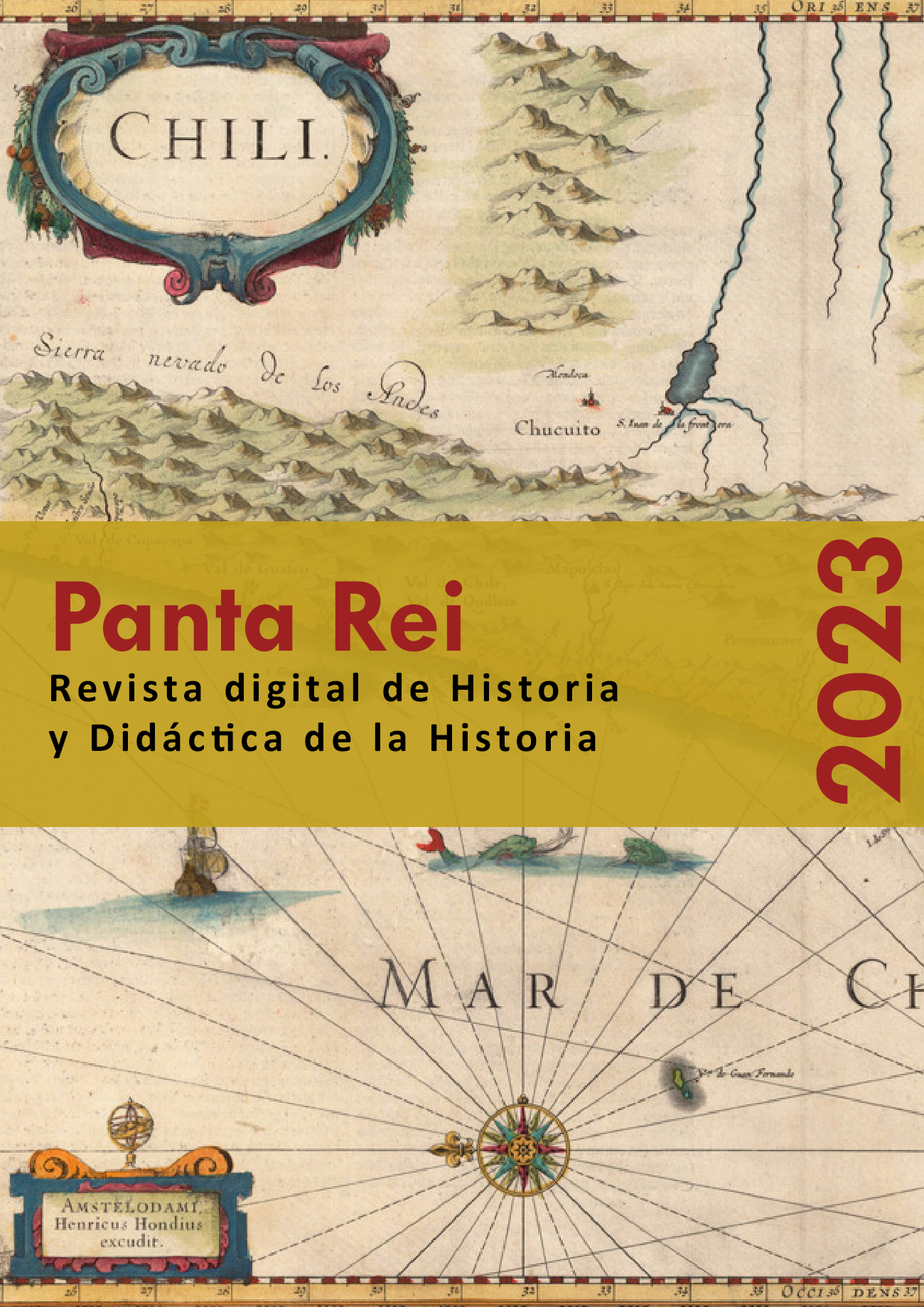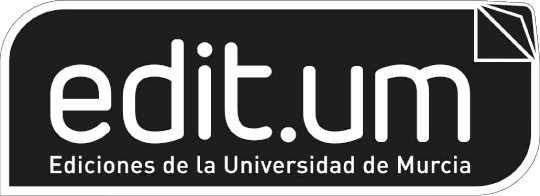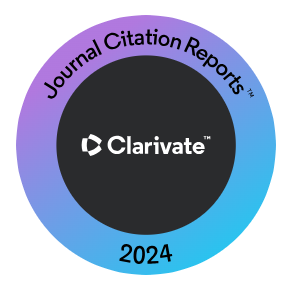Teaching recent historical conflicts through dialogical controversies and documentary theater
Supporting Agencies
- This work was carried out in the research group www.histandmem.com, coordinated by the second author. We appreciate the support of Projects PICT- 2019-02477 and 2020-SERIEA- 02828 (ANPCyT, Argentina), as well as PID2021-127529OBI00 MINECO-FEDER (Spain)
Abstract
Based on the interest of analyzing the effects of dialogic teaching in the approach to conflictive pasts, this paper presents the quantitative results of a pretest-posttest didactic design study on the teaching of the Malvinas War in a group of 66 students from Buenos Aires, Argentina. For this purpose, we developed several dialogic activities based on the viewing of the film Theater of War and the reading of historiographic texts. A questionnaire was used to assess historical knowledge, levels of prejudice towards the English and moral judgments about the war. The results suggest that the dialogic activities were effective in strengthening historical knowledge and reducing prejudice among students. Moral judgments about the war proved more difficult to change. This highlights the relevance of promoting dialogue in the classroom to encourage a reflective understanding of the past.
Downloads
-
Abstract826
-
PDF (Español (España))432
-
EPUB (Español (España))170
References
Ahonen, S. (2017). The lure of grand narratives: A dilemma for history teachers. International perspectives on teaching rival histories: Pedagogical responses to contested narratives and the history wars (pp. 41-62). Palgrave Macmillan.
Alexander, R. (2008). Towards dialogic teaching: Rethinking classroom talk. Dialogos.
Allport, G. (1954). The nature of prejudice. Addison-Wesley.
Amézola, G. de (2016). Las tres guerras de Malvinas: el conflicto en la sociedad y en la escuela de Argentina. En VII Simposio Internacional de Didáctica de las Ciencias Sociales en el Ámbito Iberoamericano (pp. 366-381) (2-4 noviembre 2016). Santiago de Compostela.
Amézola, G. de (2018). El combate perpetuo. Memoria e historia de la guerra de Malvinas en la sociedad y en la escuela de la Argentina. En Del Valle, L. (Coord.), Revisitando Malvinas: memoria, historia y escuela (pp. 11-37). Ediuns.
Arias, L. (Directora) (2014). Veteranos [Video instalación].
Arias, L. (Directora) (2016). Campo Minado [Teatro].
Arias, L. (Directora) (2018). Teatro de Guerra. Gema Films.
Bakhtin, M. (1986). Speech genres and other late essays. University of Texas.
Barreiro, A. (2015). La evaluación de las representaciones sociales de la historia: Construcción de la escala sobre representaciones de la “Conquista del Desierto”. En Actas del I Congreso Nacional de Psicología, Psicología, formación y compromiso social. 14, 15 y 16 de mayo de 2015. San Luis, Argentina.
Barreiro, A. y Castorina, J. A. (2022). Extendiendo la conversación sobre los juicios morales: contribuciones del intuicionismo social, el constructivismo y la psicología cultural. Revista de Humanidades de Valparaíso, 19, 181-202. https://doi.org/10.22370/rhv2022iss19pp181-202
Barreiro, A., Castorina, J. A. y Van Alphen, F. (2017). Conflicting narratives about the Argentinean ‘conquest of the desert’: Social representations, cognitive polyphasia, and nothingness. En M. Carretero, S. Berger y M. Grever (Eds), Palgrave handbook of research in historical culture and education (pp. 373-389). Palgrave Macmillan.
Barreiro, A., Ungaretti, J. y Etchezahar, E. (2019). Representaciones sociales y prejuicio hacia los indígenas en Argentina. Revista de Psicología, 37(2), 529-558. https://doi.org/10.18800/psico.201902.007
Barreiro, A., Ungaretti, J., Etchezahar, E. y Wainryb, C. (2020). “They are not truly indigenous people”: Social representations and prejudice against indigenous people in Argentina. Papers on Social Representations, 29(1), 6-1. https://psr.iscte-iul.pt/index.php/PSR/article/view/539
Bar-Tal, D. (e. p.). Collective memory and school textbooks: The cases of authoritarianism and intractable conflict. En M. Carretero (Ed.), The role of dialogue in history education. Routledge.
Barton, K. C. y Levstik, L. S. (2004). Teaching history for the common good. Routledge.
Barton, K. C. y McCully, A. (2012). Trying to “see things differently”: Northern Ireland students’ struggle to understand alternative historical perspectives. Theory & Research in Social Education, 40(4), 371-408. https://doi.org/10.1080/00933104.2012.710928
Berger, S. (2017). History writing and constructions of national space: the long dominance of the national in modern European historiographies. En M. Carretero, S. Berger y M. Grever (Eds), Palgrave handbook of research in historical culture and education (pp. 39-58). Palgrave Macmillan.
Cantabrana, M. (2023). Narrativas sobre la guerra de Malvinas y tecnologías dialógicas para enseñar historia. En M. Carretero (Ed.), Enseñar historia en la era digital (pp. 251-277). Tilde Editora.
Cantabrana, M. y Carretero, M. (2022). Theatre of War: Lola Arias' documentary theatre as innovative tool for historical dialogue. En M. Carretero, M. Cantabrana y C. Parellada (Eds.), History education in the digital age (pp. 217-234). Springer.
Carassai, S. (2022). Lo que no sabemos de Malvinas: Las islas, su gente y nosotros antes de la guerra. Siglo XXI Editores.
Carretero, M. (2011). Constructing patriotism: Teaching history and memories in global worlds. IAP [Versión castellana actualizada: Carretero, M. (2022). Documentos de identidad. La construcción del conocimiento histórico en un mundo global. Tilde Editora.]
Carretero, M. (2017). Teaching of recent and violent conflicts as challenges for history education. En C. Psaltis, M. Carretero y S. Cehajic-Clancy (Eds.), History education and conflict transformations (pp. 341-377). Palgrave.
Carretero, M. y Bermudez, A. (2012). Constructing histories. En J. Valsiner (Ed.), Oxford handbook of culture and psychology (pp. 525-546). Oxford University Press.
Carretero, M., Castorina, J. A. y Levinas, M. L. (2013). Conceptual change and historical narratives about the nation. A theoretical and empirical approach. En S. Vosniadou (Ed.), International handbook of research in conceptual change (pp. 269-287). Routledge.
Carretero, M., Haste, H. y Bermudez, A. (2015). Civic education. En L. Corno y E. M. Anderman (eds.), Handbook of educational psychology (pp. 309-322). Routledge.
Carretero, M. y Perez-Manjarrez, E. (2022). Learning history. En K. Sawyer (Ed.) (2022), Cambridge handbook of learning sciences (pp. 523-542). Cambridge University Press.
Carretero, M. y van Alphen, F. (2018). History, collective memories or national memories: How the representation of the past is framed by master narratives. En Handbook of culture and memory (pp. 283-303). Oxford University Press.
Carretero, M., van Alphen, F. y Parellada, C. (2018). National identities in the making and alternative pathways of history education. En A. Rosa Rivero y J. Valsiner (Eds.). Cambridge handbook of sociocultural psychology (pp. 424-442). Cambridge University Press.
Cramwinckel, F. M., Scheepers, D. T. y Van Der Toorn, J. (2018). Interventions to reduce blatant and subtle sexual orientation‐and gender identity prejudice (SOGIP): Current knowledge and future directions. Social Issues and Policy Review, 12(1), 183-217. https://doi.org/10.1111/sipr.12044
Dovidio, J. F., Hewstone, M., Glick, P. y Esses, V. M. (2010). Handbook of prejudice, stereotyping, and discrimination. Sage.
Elmertsjo, H. A., Clark, A. y Vinterek, M. (Eds.) (2017). International perspectives on teaching rival histories. Pedagogical responses to contested narratives and the history wars. Palgrave Macmillan.
Fabian, J. L. (2022). Los manuales de Historia como formadores de identidad nacional hasta mediados del siglo XX. El caso de la primera invasión inglesa. Clio & Asociados, (34). http://dx.doi.org/10.14409/cya.v0i34.11306
Foster, S. (2013). Teaching controversial issues in the classroom: The exciting potential of disciplinary history. En M. Baildon, K. S. Loh, I. M. Lim, G. İnanç y J. Jaffar (Eds.), Controversial history education: History textbook controversies and teaching historical controversy in Asian contexts (pp. 19–39). Routledge.
Gatica, L., Martini, J. P., Dreizik, M., Imhoff, D. y Brussino, S. (2015). Aportes para la evaluación del nivel de prejuicio hacia personas pobres en estudiantes universitarios cordobeses. Actas del I Congreso Nacional de Psicología ‘Psicología, formación y compromiso social’ (pp. 791-792). 14, 15 y 16 de mayo de 2015. San Luis, Argentina.
Goldberg, T. (2013). “It's in my veins”: Identity and disciplinary practice in students' discussions of a historical issue. Theory & Research in Social Education, 41(1), 33-64. https://doi.org/10.1080/00933104.2012.757265
Goldberg, T. y Savenije, G. M. (2018). Teaching controversial historical issues. En S. Metzger y L. M. Harris (Eds), The Wiley international handbook of history teaching and learning (pp. 503-526). Wiley-Blackwell. https://doi.org/10.1002/9781119100812.ch19
Hobsbawm, E. (2013). Naciones y nacionalismo desde 1780. Planeta.
Ley 27023/2014, de 15 de diciembre, “Las Islas Malvinas son Argentinas”. Leyenda obligatoria. Honorable Congreso de la Nación Argentina, 1 de febrero de 2015. http://servicios.infoleg.gob.ar/infolegInternet/anexos/240000-244999/240298/norma.htm
Linare, C. (2022). El conflicto y la guerra de Malvinas en las prescripciones curriculares del nivel primario bonaerense (1993-2020). ¿La historia de una derrota en el campo de batalla curricular? Clio & Asociados, 34. https://doi.org/10.14409/cya.v0i34.11472
Liu, J. H. y László, J. (2007). A narrative theory of history and identity: Social identity, social representations, society, and the individual. En G. Moloney y I. Walker (Eds.), Social representations and identity: Content, process, and power (pp. 85-107). Palgrave Macmillan.
Lorenz, F. (2014). Todo lo que necesitás saber sobre Malvinas. Planeta.
Lorenz, F. (2022a). Malvinas. Historia, conflictos, perspectivas. SB Editorial.
Lorenz, F. (2022b). Las guerras por Malvinas: 1982-2022. Edhasa.
Malzacher, F. (2019). Identities in negotiation. En J. Graham-Jones (Ed.), Lola Arias. Re-enacting Life (pp. 246-252). Performance Research Books.
Muller, M., Ungaretti, J. y Etchezahar, E. (2017). Validación argentina de la Escala de Prejuicio Sutil y Manifiesto hacia villeros. Revista de psicología, 26(1), 1-13. http://dx.doi.org/10.5354/0719-0581.2017.46204
Nordgren, K. y Johansson, M. (2015). Intercultural historical learning: A conceptual framework. Journal of Curriculum Studies, 47(1), 1-25. http://dx.doi.org/10.1080/00220272.2014.956795
Parellada, C., Castorina, J. A. y Barreiro, A. (2021). Representación y represión de los significados sociales en la cartografía. En J. A. Castorina y A. Barreiro (Eds), Hacia una dialéctica entre individuo y cultura en la construcción de conocimientos sociales (pp 163-186). Miño y Dávila.
Perez-Manjarrez, E. (2022). ‘It Isn’t about who was worse’: Colonialism and historical debate on social media. In M. Carretero, M. Cantabrana y C. Parellada (Eds.), History education in the digital age (pp. 125-141). Springer.
Perez-Manjarrez, E. y Carretero, M. (2021). Historical maps as narratives. En S., Berger, N., Brauch y C. Lorenz (Eds.), Analysing historical narratives: on academic, popular and educational framings of the past (pp. 164-189). Berghahn Books.
Pettigrew, T. F. y Meertens, R. W. (1995). Subtle and blatant prejudice in Western Europe. European Journal of Social Psychology, 25(1), 57-75. http://dx.doi.org/10.1002/ejsp.2420250106
Pineau, P. y Birgin, A. (2018). The Malvinas War: experiencing and remembering the conflict in Argentine schools. Paedagogica Historica, 55(2), 314-333. https://doi.org/10.1080/00309230.2018.1534871
Psaltis, C., Carretero, M. y Čehajić-Clancy, S. (2017). History education and conflict transformation: Social psychological theories, history teaching and reconciliation. Springer.
Real Academia Española: Diccionario panhispánico del español jurídico (DPEJ) [en línea]. < https://dpej.rae.es/ > [Fecha de la consulta: 25/06/2023].
Reisman, A. (2015). Entering the historical problem space: Whole-class text-based discussion in history class. Teachers College Record, 117(2), 1-44. https://doi.org/10.1177/016146811511700206
Rüsen, J. (2004). Historical Consciousness: Narrative structure, moral function, and ontogenetic development. En P. Seixas (Ed.), Theorizing historical consciousness (pp. 63-85). University of Toronto Press.
Sansón Corbo, T. (2011). La construcción de la nacionalidad en los manuales de historia rioplatenses. Nuevo Mundo Mundos Nuevos [en línea]. https://doi.org/10.4000/nuevomundo.61419
Sarti, M. y Barreiro, A. (2014). Juicios morales y memoria colectiva: narrativas de jóvenes sobre la “Conquista del Desierto”. En J. A. Castorina y A. Barreiro (Eds.), Representaciones sociales y prácticas en la psicogénesis del conocimiento social (pp. 141-156). Miño y Dávila.
Sarti, M. y Barreiro, A. (2018). National identity in the historical narratives of a morally questionable historical process/Identidad nacional en las narrativas sobre un proceso histórico moralmente cuestionable. Cultura y Educación, 30(3), 433-459. https://doi.org/10.1080/11356405.2018.1488419
Tajfel, H. y Turner, J. C. (1986). The social identity theory of inter-group behavior. En S. Worchel y L. W. Austin (Eds.), Psychology of intergroup relations (pp. 7–24). Nelson-Hall.
Ungaretti, J., Etchezahar, E. y Barreiro, A. (2018). Validation of the subtle and blatant prejudice scale towards indigenous people in Argentina. Current Psychology, 39, 1423-1429. https://doi.org/10.1007/s12144-018-9844-4
van Boxtel, C. (e. p.). Observing dialogue in the history classroom: different approaches for analysing the interaction of teachers and students. En M. Carretero (Ed.), The role of dialogue in history education. Routledge.
van Boxtel, C. y van Drie, J. (2017). Engaging students in historical reasoning: The need for dialogic history education. En M. Carretero, S. Berger y M. Grever (Eds.), Palgrave handbook of research in historical culture and education (pp. 573-589). Palgrave Macmillan.
Wansink, B., Akkerman, S., Zuiker, I. y Wubbels, T. (2018). Where Does Teaching Multiperspectivity in History Education Begin and End? An Analysis of the Uses of Temporality, Theory & Research in Social Education, 46(4), 495-527, https://doi.org/10.1080/00933104.2018.1480439
Wertsch, J. V. (2002). Voices of collective remembering. Cambridge University Press.
Wertsch, J. V. (2018). National memory and where to find it. En B. Wagoner (Ed.), Handbook of culture and memory (pp. 259-281). Oxford University Press.
Wineburg, S. (2001). Historical thinking and other unnatural acts: Charting the future of teaching the past. Temple University Press.
Copyright (c) 2023 María Cantabrana Carassou, Mario Carretero, Alicia Barreiro

This work is licensed under a Creative Commons Attribution-ShareAlike 4.0 International License.
All the contents published in this journal are subject to an Attribution-ShareAlike 4.0 International (CC BY-SA 4.0) Creative Commons License. You are free to: Share — copy and redistribute the material in any medium or format, Adapt — remix, transform, and build upon the material, for any purpose, even commercially. Under the following terms:
Attribution — You must give appropriate credit, provide a link to the license, and indicate if changes were made. You may do so in any reasonable manner, but not in any way that suggests the licensor endorses you or your use.
ShareAlike — If you remix, transform, or build upon the material, you must distribute your contributions under the same license as the original.
Full text of the license is available in: Creative Commons License 











